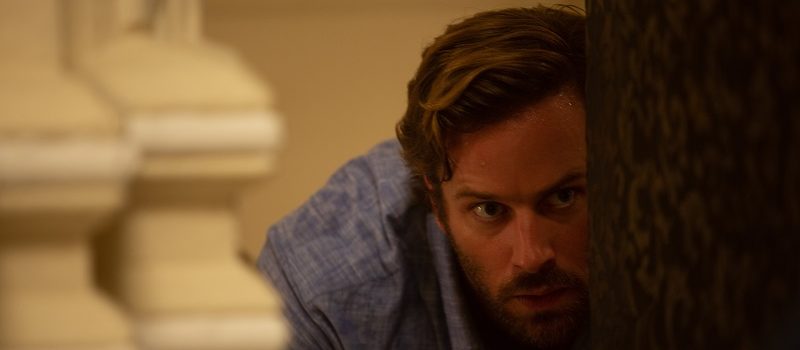Hotel Mumbai is the extraordinary and thrilling true tale of 2008 terrorist attack on the legendary Taj Mahal Palace Hotel in the titular Indian city. The Movie Mensch spoke with director Anthony Maras for an exclusive interview about the horrific tragedy and how one brings that to the screen in a manner that salutes the heroes and those who perished on that fateful day, as well as enlightening and engrossing a movie audience. It’s a fine line, one that Maras threaded triumphantly.
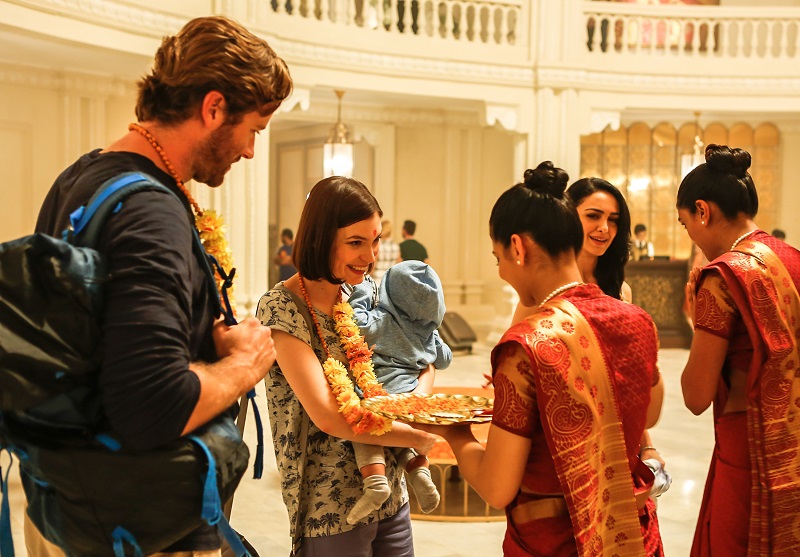
The film stars Dev Patel and Armie Hammer, along with a terrific ensemble of international actors—including many who are residents of Mumbai. One thing they all shared, Maras told me, was a resolve to pay homage to the heroes of that day and those who perished with unbridled honestly that resonates in every frame of the riveting film.
Of particular note was Maras’ thoughts on the people of Mumbai and their uncanny resolve. He spent years there, off an on, while researching, writing and then filming Hotel Mumbai. From the staff at the famed hotel to the people who survived that day and even citizens who viewed it from a distance, Maras could not get over how welcoming and pleased the community was to have their story told. Thirty-one people perished at the hotel during the four-day siege, one of many sites across the city that came under attack over four days that commenced on November 26, 2008. The filmmaker even described the experience of showing the film first, the employees of the hotel, and then to the city as a whole. It’s a powerful story that was met with an equally powerful response worthy of the memory of all whose lives were lost to the terrorist launched senseless act.
The Movie Mensch: Making your directorial debut, for a full-length film here at least, with Hotel Mumbai, what aspect of filmmaking effort did you find surprisingly challenging, that you didn’t see coming. And second, what part of the process were you apprehensive or nervous about, that you were surprised how smoothly it went?
Anthony Maras: I didn’t know what to expect when we were filming in India. I spent a lot of time there doing the research with my co-writer, and so I really got a feel for the city over the course of about a year we came back and forth a bit a few times. Mumbai has got more people than the entire country of Australia. It was overwhelming when we first got there. Just the pace of the city, the fact that in every single direction you looked something was going on every second of every day. And I remember thinking through the research process, boy, this is going to be something to film here. It can be difficult to cross the road there, it’s so crazy. How are we going to film a movie here? I was then surprised how just how smoothly the production side of things actually went in India. For instance, we have huge set pieces involving hundreds of cast and crew. It’s an international team, but in India we had our top production who’d done Slumdog Millionaire they made it a real. That was the thing I thought would be challenging which was pretty remarkable.
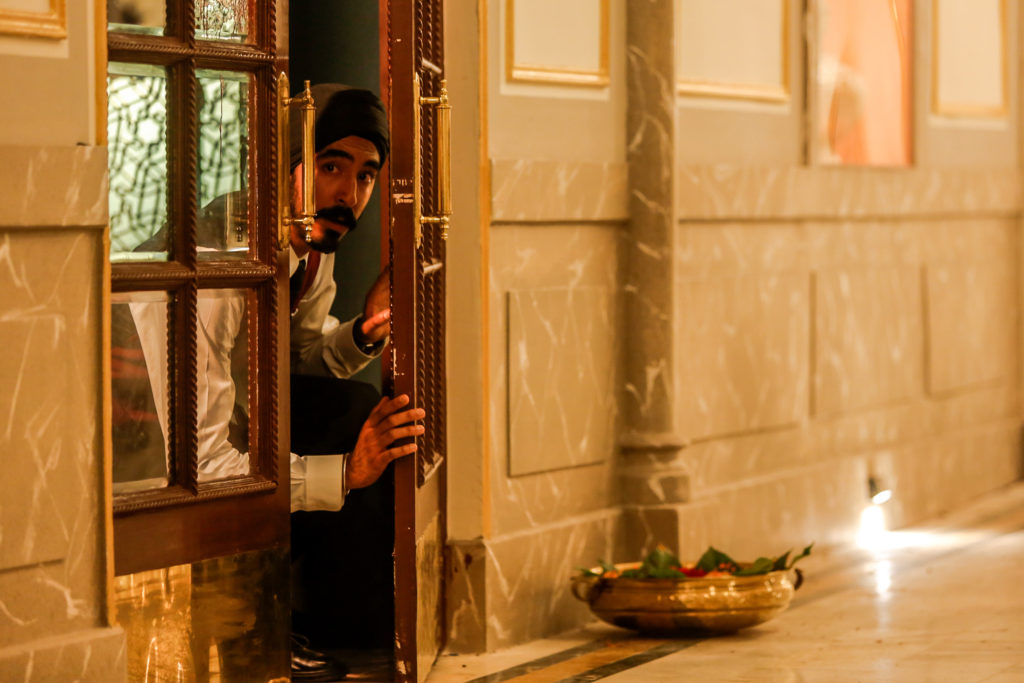
The Movie Mensch: How was it interacting with the hotel staff and people in Mumbai who lived through this horror?
Anthony Maras: It was just the responsibility that you feel to the story, the guests and the staff. On a bigger level, which I think all of us collectively felt, we were making a story that touched a lot of people’s lives, that was still very raw in many ways. Navigating that was something that was a real responsibility that we felt literally since day one to even now. It’s something that you hope that all the blood, sweat and tears that you put out there, it does justice to the underlying story. That was definitely something that was very present in our lives.
The Movie Mensch: Now for the Indian actors in your ensemble, did you ever see any signs that this was a difficult movie for them, and if so, how did you handle that?
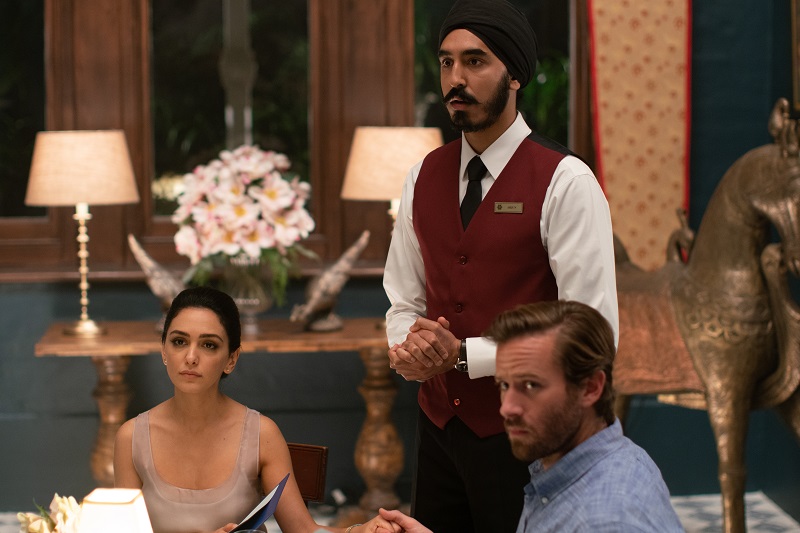
Anthony Maras: Quite the opposite actually. They really embraced the film. Many of them came from Mumbai, family and friends who were caught up in the attacks or affected one way or the other. I’m not going to say enthusiasm because that is the wrong word, there was a real commitment from day one to saying, “Okay, let’s lock our arms and do this together.” There’s obviously sensitivities that come into play, but I think it’s a story that they wanted told. It’s well-known in India in other parts of the world. There’s definitely a feeling that this is a story that needs to be told, and that’s what I felt at least from the cast and the crew and everyone that we had come on board.
The Movie Mensch: Did you show the film to the hotel staff or people of Mumbai before releasing it to the world?
Anthony Maras: A real moving experience just happened a month ago when we went and showed the film in Mumbai at a sort of private screening for the Taj staff who had lived through the attack. We had been in frequent contact with Hemant Oberoi, the head chef played by Anupam Kher. He came to see the film before we screened it publicly. Then we showed it in Toronto. But going back to Mumbai in December and screening the film was both a terrifying and ultimately a really rewarding experience. Because we are showing it in the city that it happened, to the people that it happened to. Afterwards one of them spent a fair bit of time talking about the film afterwards, just said, “You know, it’s funny, what I felt when I was there during the attacks was what I felt when I was seeing your film.” That was like a very moving moment to me for sure.
The Movie Mensch: Wow, I can imagine. You mentioned you premiered it at TIFF, and after everything you went through to make it, first of all, what was it like to attend that most extraordinary of film festivals?
Anthony Maras: Couldn’t have hoped for a better launch pad for our film. Obviously, audiences in Toronto are renown for being real cinema lovers. Showing it there for the first time, a lot of the cast members had never seen it before. Others had seen it, I had seen it many different times obviously all throughout the editing process. I constantly found myself looking at our cast members who were sitting in the row next to me, watching their expressions as well while watching the film. That was a real experience. After the screening in Toronto, I think there was about 2000 people or thereabouts watching the film, you could hear a pin drop throughout it. Then when we said we have someone in the audience here and pointed out Hemant Oberoi—who is the head chef—you felt the energy in the room. This is an ordinary man, he’s not a policeman, he is not a soldier, he was a chef. And that he lived through it and he’s there for that experience. That’s the dream when you set out to make a film. A lot of people didn’t know what happened in Mumbai and didn’t know much about this. That was something we felt proud of, that we were able to shed light on an event that was so critical to so many people and to get across how they got through it, and the resilience that was shown afterwards. There was a humanity in full display. To be a part of that when making the film, yeah, it was a life-changing experience.
The Movie Mensch: Now Dev has been at it for over a decade now. How did you find him? What does he bring to the set, that intangible thing when you cast somebody?
Anthony Maras: Well, we wrote the script with Dev very much in mind. It was more than just what you get on film. Dev was involved from very early on. He saw I think the first or second draft of the script. He has spent a lot of time obviously in Mumbai. They were filming the last scene in Slumdog Millionaire at the same train station the attacks happened. I know it was something that affected him on a really profound level when that he was very keen on being part of the story with the subject matter. He was just such a generous actor from day one, in terms of not just his performance but being there for the other cast members. He went to India for over a month before shooting started to sort of really acclimatize to that world. He went and spent a lot of time at the Taj, speaking to people who lived through the experience, and who work there. He was critical. He was the tip of the spear of the narrative of that film. The film pretty much starts and ends with his story, even though it’s very much an ensemble piece. His character provides something of a spine through the film in that he moves between many parts of the hotel and is kind of the connective tissue between many elements of the story. He embraced it wholeheartedly.
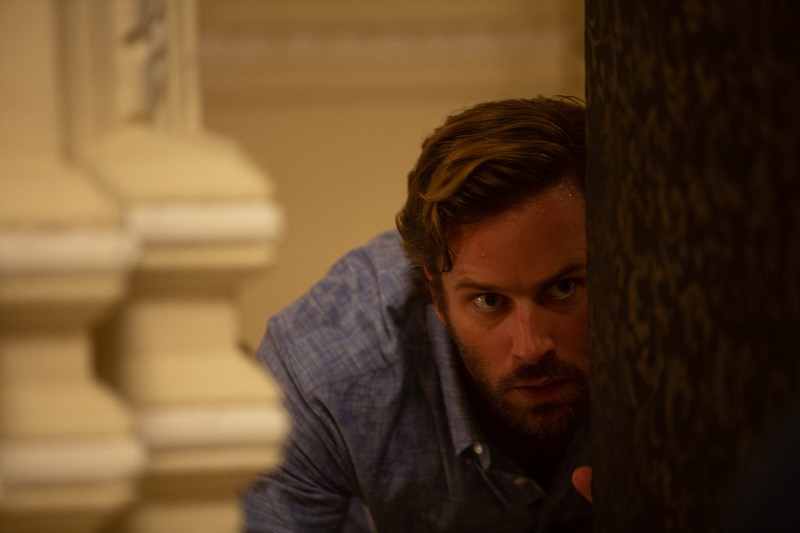
The Movie Mensch: It was also very striking to me to see Armie’s performance. His character is very selfless yet he’s also very much the father we all hope that we could be, always being concerned of our child. His performance really blew me away, and you had front row seat to it. What do you think makes him so special.
Anthony Maras: Well I think you look at his versatility as an actor, you got a guy who made people’s hearts melt in Call Me By Your Name, and then he’s in this. You couldn’t get two more different films. He also is an actor who just jumps into it with two feet first. He wasn’t scared to go out on a limb and try things. As a first-time director, you do get nervous thinking, “how are they going to be?” I can’t overstress the importance of having actors who are willing to give it their all in that regard. They were there every second of it and to have that kind of support, as a filmmaker—particularly as a first-time filmmaker and especially with subject matter and production that is logistically challenging as this—I couldn’t have done it without them.
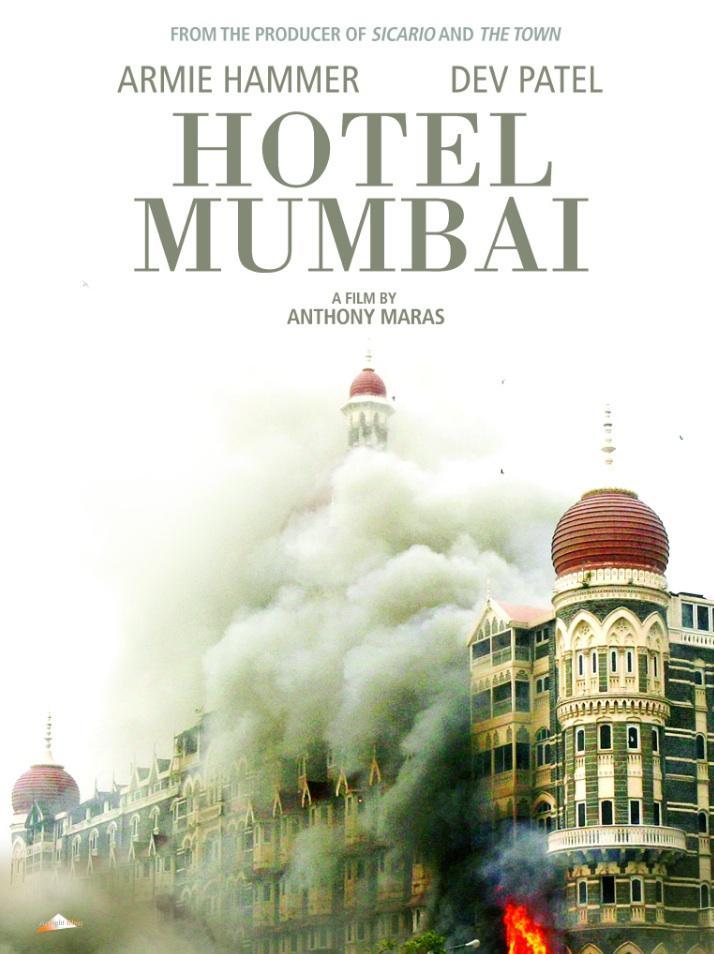
The Movie Mensch: Researching this project, what was something that surprised you, or something you didn’t know about the events in Mumbai that kind of surprised you when you came across it?
Anthony Maras: The immediate thing that hit me, and made me want to do the film, was when I learned about the staff themselves. I could understand if one or two staff members were willing to sort of go to all levels, to all extremes to protect their guests. There are compassionate people, there are selfless people, there are brave people everywhere. But what was striking about what happened at the Taj was that it wasn’t just one or two of them, it was all the staff en masse with no organization and with no playbook as to what would happen in the case of a terror attack.
The Movie Mensch: That was one of the most stunning aspects of this story that I don’t think people knew about the terrorist attacks in Mumbai.
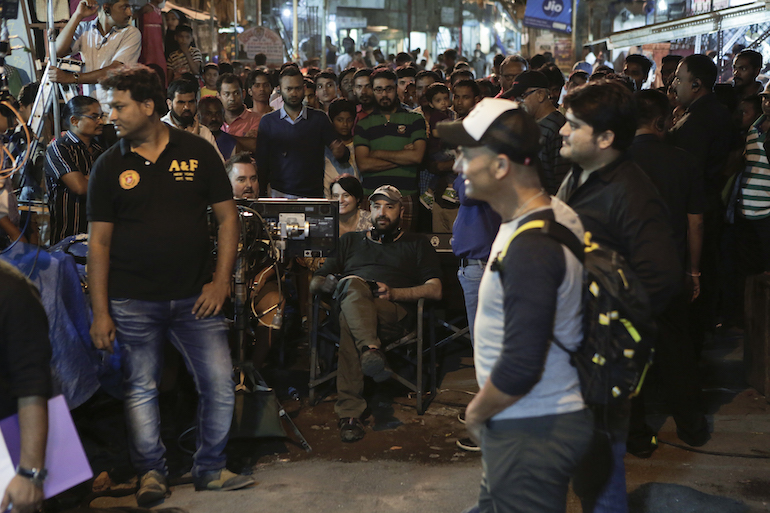
Anthony Maras: I was perplexed at how it was that across the board they stayed to protect their guests. If you remember, the Taj building itself is a huge building with as many different little crevices and passageways in and out. The staff were able to escape, not all of them at once. But one man, he escaped three separate times and was saying to the police, “Come on, you got to come in and help us.” And each time, they were just stretched way too thin. You know these attacks were going on all across the city. There were twelve sites over the course the Mumbai attacks that were hit, and it took time to be able to send the SWAT team and the Special Forces team to enter. Within that time the staff were on their own pretty much. I was just perplexed. The question I wanted to find out more about was what was it that these staff members, about the culture of the hotel itself that had people risking life and limb in many cases for strangers. Harvard Business Review did a case study on the Taj, where they got school psychologists to ask the same question. What is it about the corporate culture of the Taj that unlike many other of these attacks, people were banding together so unanimously to help?
The Movie Mensch: What did they find?
Anthony Maras: One thing they brought up in the study, which I definitely found when I got to India when I was speaking to many of the different survivors, guests and staff, was that when they go hire people at the Taj Hotel, they are not necessarily looking for people who get the best grades at the best hotel schools. In many cases they would go out to regional areas or to areas where life is quite difficult in India. They would recruit people not based on their ability or aptitude only, but they are also looking for conscientiousness, cooperation, empathy, because they want their hotel to sort push these values. The byproduct of that was when the attacks happened, you have this amazing influence of the staff doing everything they could, like even to the point in the chambers you have kitchen staff shoving baking trays and pots and pans under their shirts so they could shield their guests from AKA-47 machine gun fire as they were making their final evacuation. You almost couldn’t believe it, although it happened.

